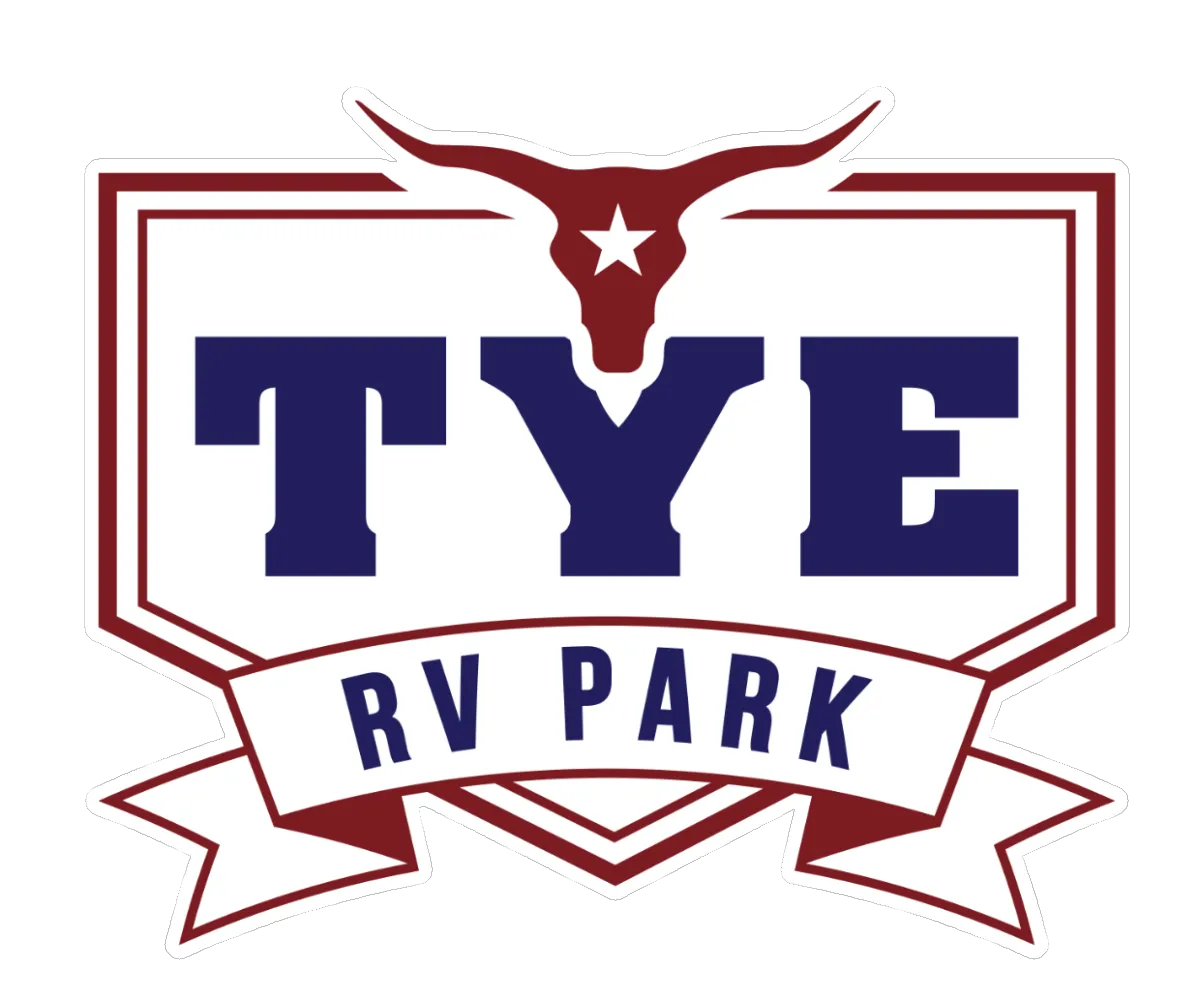Welcome to
Tye RV Park
Work. stay, Play.

First Class Amenities
Experience resort-quality comfort, sparkling clean facilities, high-speed WiFi, and more.

Premium RV Sites
Enjoy clean, big-rig friendly, RV pads with lush green lawns.

On site Laundry
Our resort-quality laundry facility is clean, easy to use, and it’s completely free!
Quiet, Comfortable RV Living Near Abilene
Experience Relaxed, Comfortable RV Living at Tye RV Park — Your Home Base in West Texas
Discover a peaceful and convenient RV park experience at Tye RV Park, located just minutes from Abilene, Texas. Our well-maintained park combines affordable long-term stays with the everyday comforts RV travelers appreciate, making us a top choice for workers, full-time RVers, and anyone seeking a quiet place to call home.
With full-hookup RV sites, level parking, reliable utilities, and easy access to I-20, Tye RV Park delivers the perfect blend of simplicity and convenience. Each site features ample spacing, clean surroundings, and everything you need for a comfortable stay—whether you’re here for a few nights or settling in for the season.
Guests enjoy the benefits of a small, friendly RV community without the noise or congestion of large resort-style parks. From dependable Wi-Fi and on-site laundry to the short drive into Abilene for groceries, dining, and work, our location supports both relaxation and daily living with ease.
Just 10 minutes from Dyess Air Force Base and close to major employers, Tye RV Park is ideal for workforce stays and long-term guests looking for stability, safety, and great value in West Texas.
If you’re searching for a quiet, convenient, and budget-friendly RV park near Abilene, Tye RV Park offers the uncomplicated comfort you’ve been looking for.

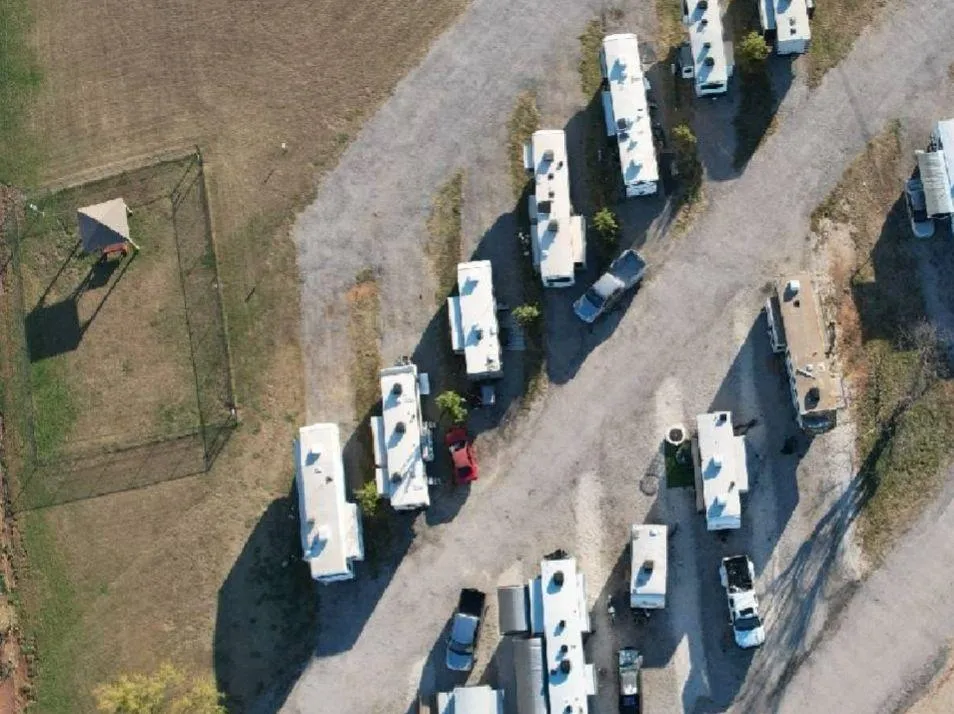

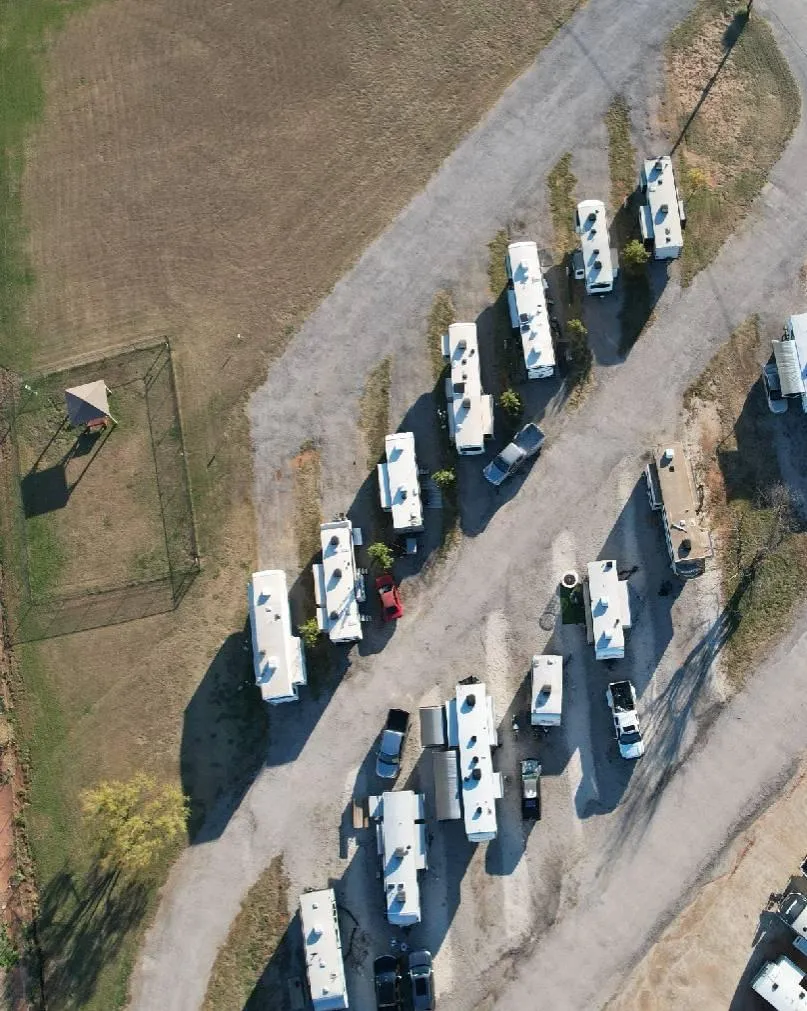

Your Home Base for Easy
Stress-Free RV Living

123 Full-Hookup RV Sites in Tye, Texas
Enjoy simple, comfortable RV living at Tye RV Park, just minutes from Abilene. Our 123 full-hookup RV sites are designed for dependable utilities, easy setup, and a clean, quiet environment, perfect for both short-term and long-term guests.
Site Features:
30/50 amp electrical hookups to power all RV systems
Full water and sewer hookups for convenient daily living
Level, easy-access parking pads for fast setup
Spacious sites with clean, open surroundings
Reliable high-speed WiFi available for work or streaming
Well-maintained grounds
Big-rig friendly sites accommodating larger RVs with ease
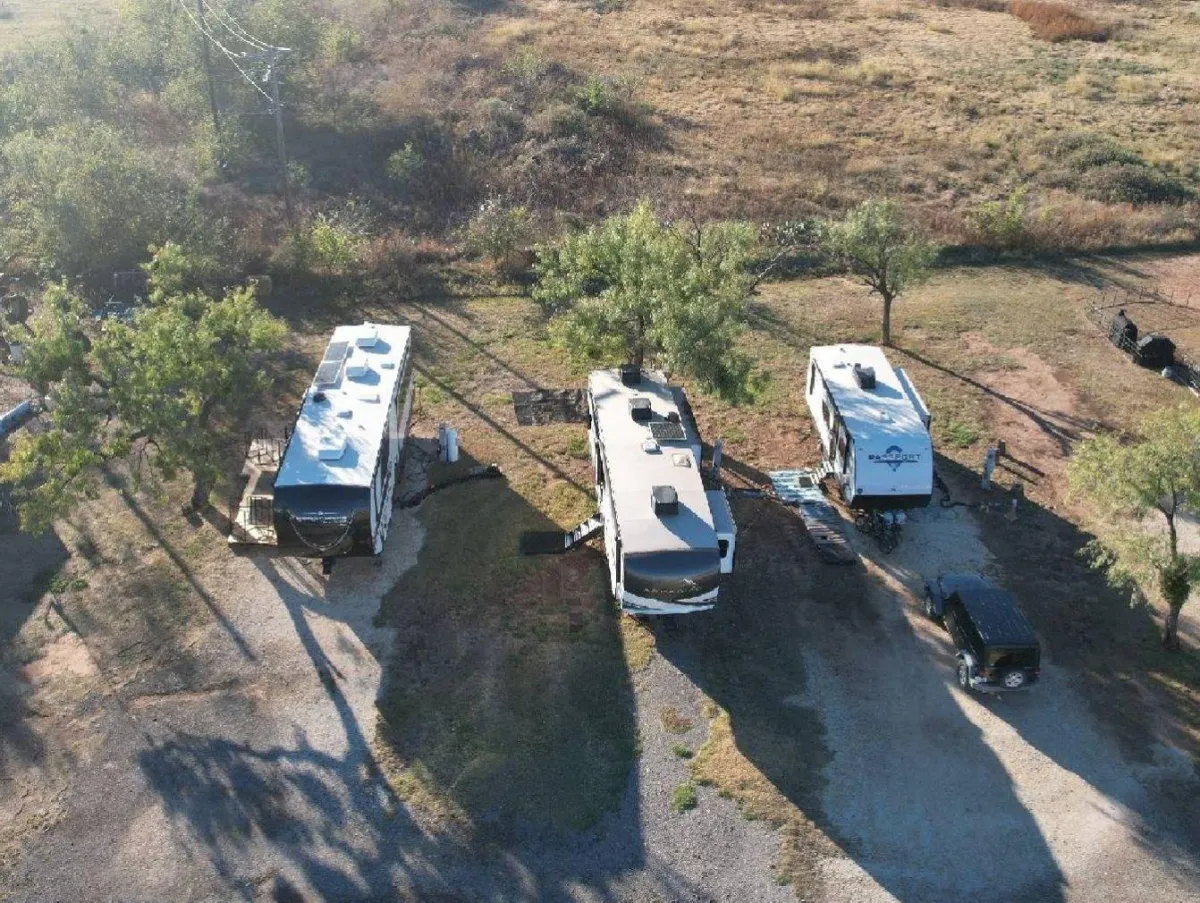

Deluxe Back In
Full-hookup sites with large yards and none behind you
Conveniently, located near the bathhouse and laundry facility
Sites 458-464
$35/Night
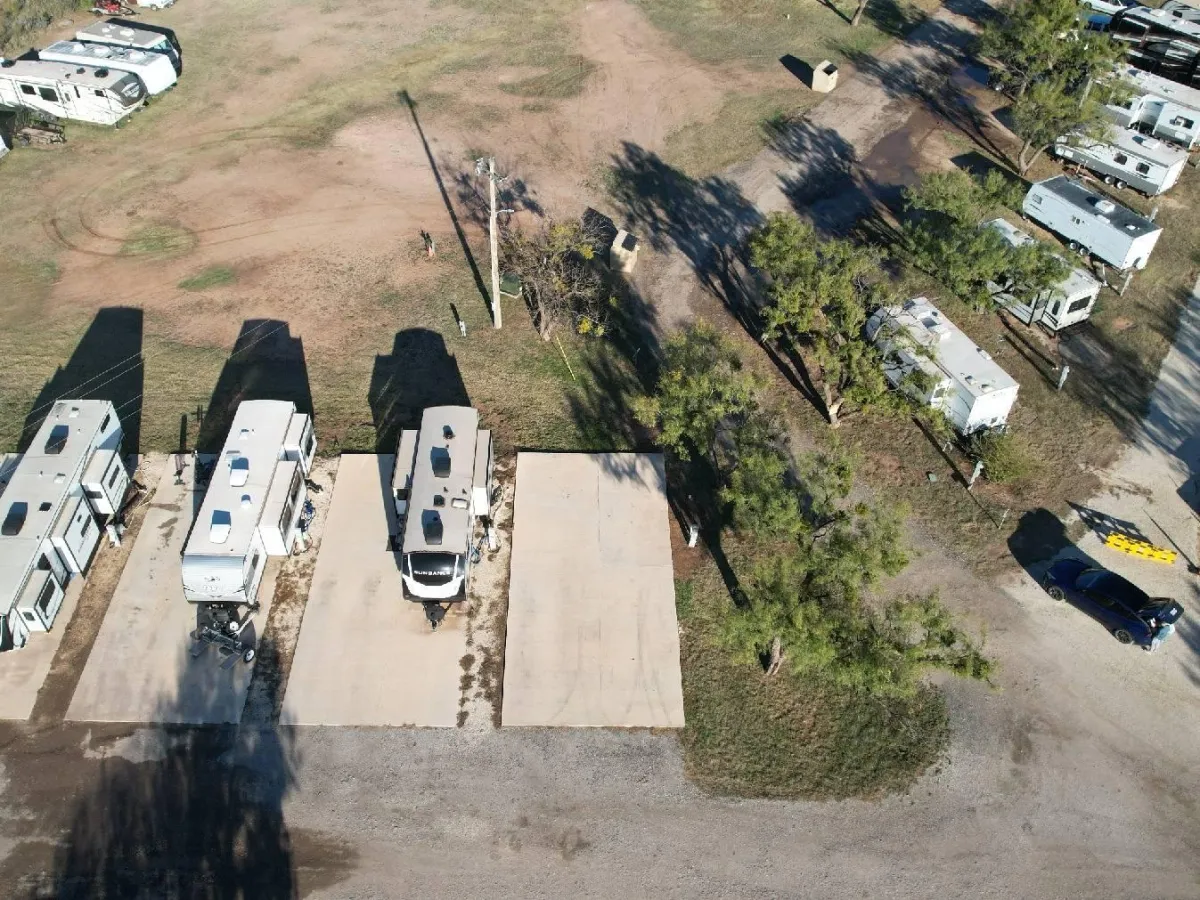

Concrete Back In
Full-hookup RV sites with a large concrete pad
Easy access to the pond for an evening fishing trip and near the bathhouse
Sites 601-608
$35/Night
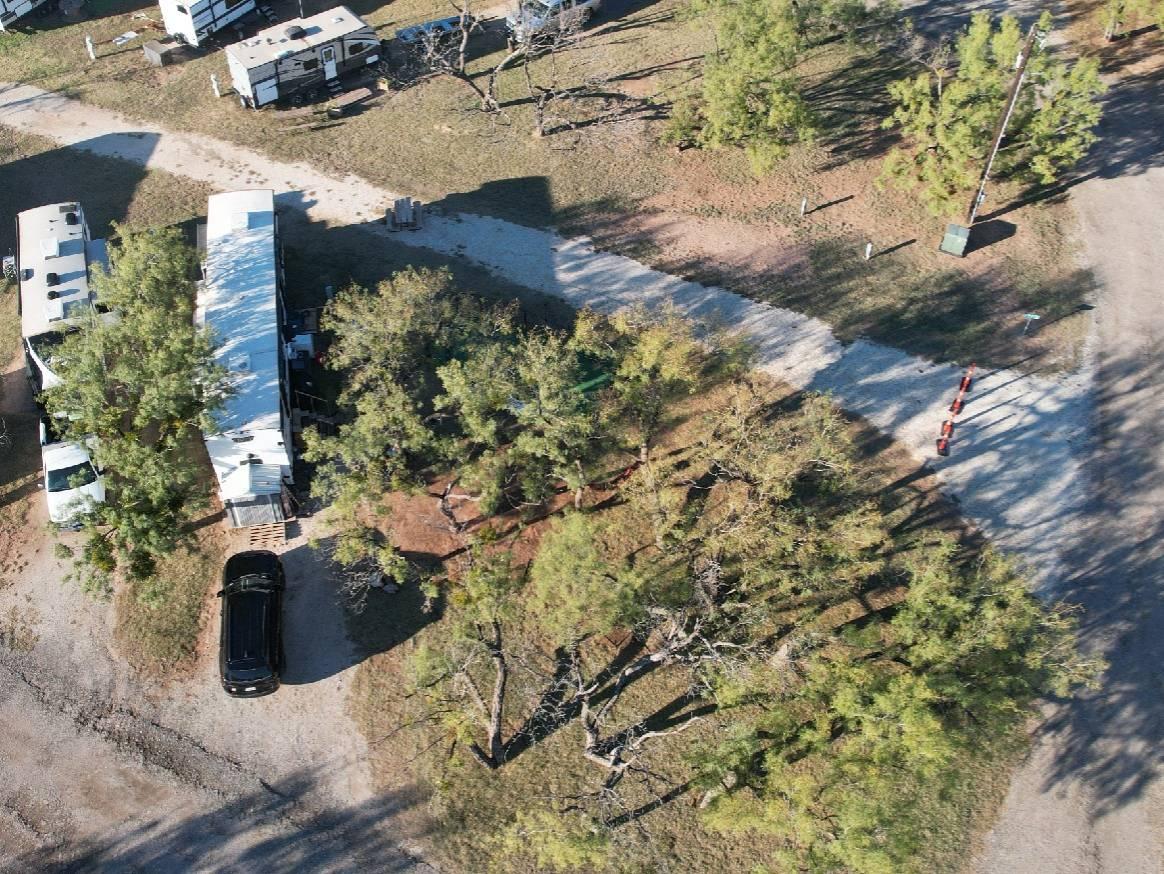

Premium Plus
Spacious, full-hookup RV sites located in prime areas
Extra room and privacy ideal for large RVs, fifth wheels, and motorhomes
Sites 321-325, 501, 516, 536
$35/Night
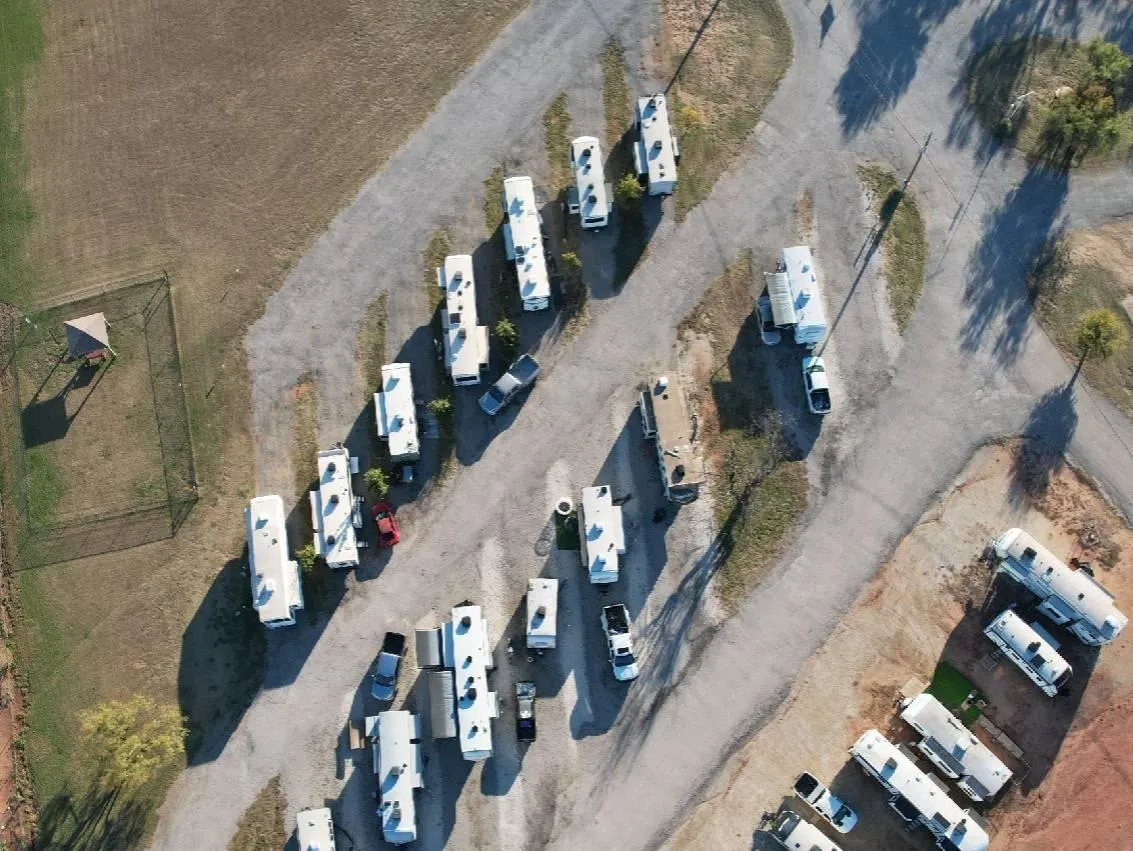

Premium Pull-Thru
Convenient full-hookup RV sites designed for easy pull-in and pull-out access
Perfect for large RVs, fifth wheels, and motorhomes — no backing required
Sites 111-117, 121-128, 209-212, 300
$35/Night
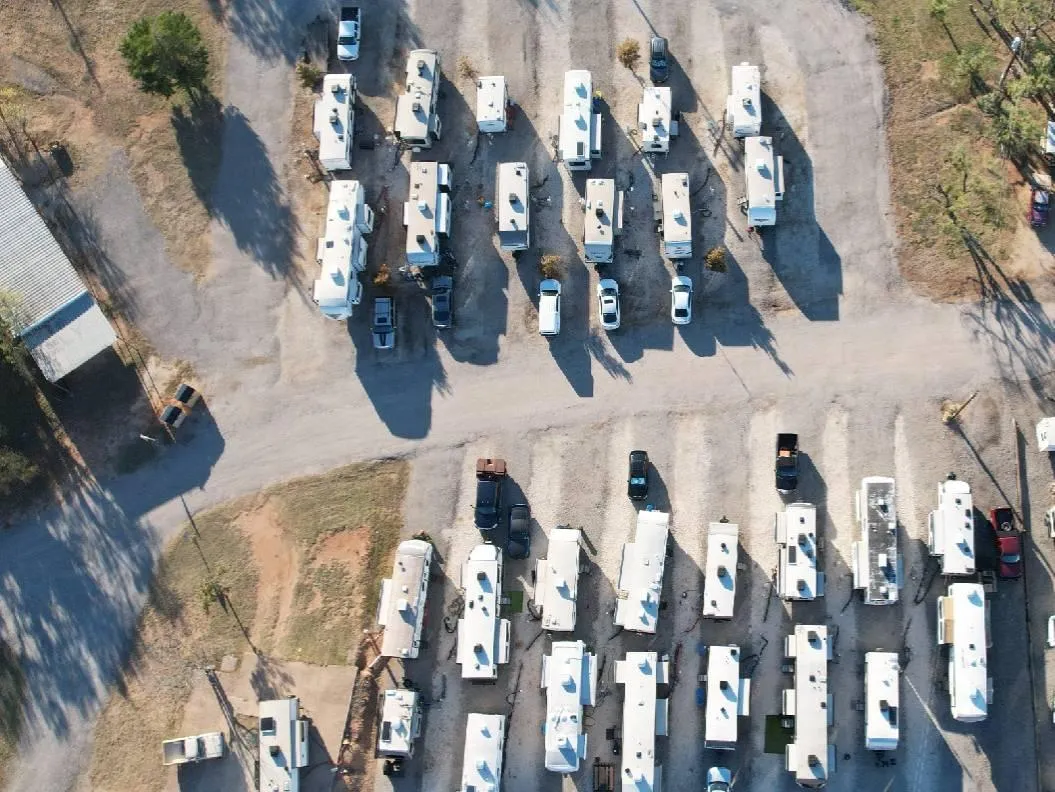

Premium Back-In
Extended full-hookup RV sites designed specifically for big rigs and long RVs
Spacious pads with plenty of room for tow vehicles, slide-outs, and outdoor gear
Sites 301-318, 401-416, 451-457, 549-555
$35/Night
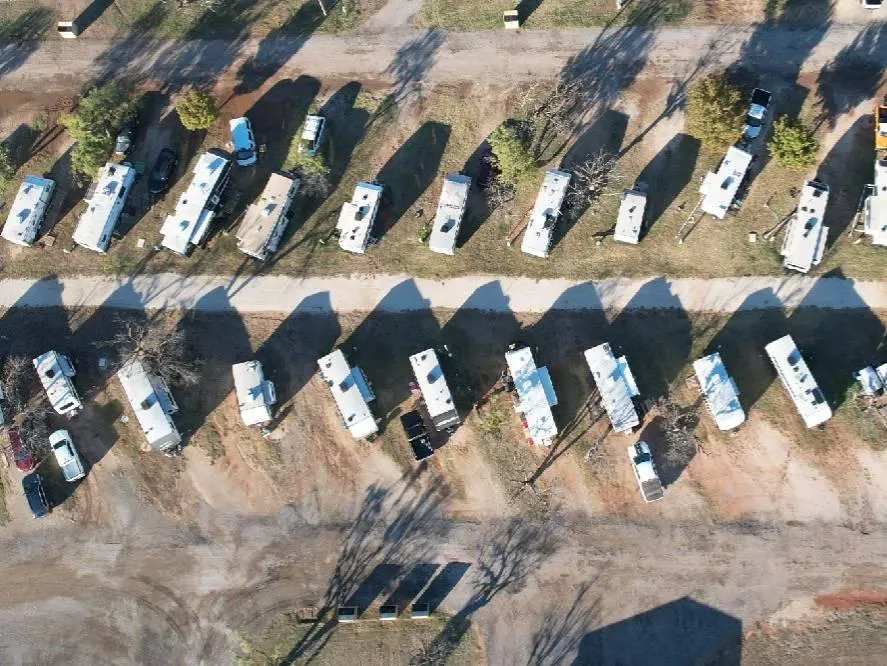

Standard Back-In
Reliable 40-foot full-hookup RV sites offering great value and comfort
Easy access to park amenities, including restrooms, laundry, and recreation areas
Sites 201-208, 502-515, 521-535
$35/Night
Why Stay at Tye RV Park?
Our RV park features modern amenities and a convenient location that makes exploring the Abilene area easy, and we’re proudly Big Rig Friendly.
Park Amenities Include:

Free High-Speed WiFi
Stay connected with complimentary WiFi throughout the entire RV park, perfect for remote workers

Sparkling Clean Laundry Facility
Enjoy the convenience of free 24-hour laundry access, making it easy to wash on your schedule

Fenced Dog Park
Let your furry companions run and play in our secure, spacious dog park

Clean Restrooms & Showers
Immaculately maintained facilities with hot showers. Keep clothes fresh with our clean, well-maintained laundry room

Fishing Pond
Relax by the catch-and-release fishing pond, the perfect spot to unwind and enjoy the outdoors

Convenient Location
Located just off I-20, offering quick access to Abilene, dining, shopping, and everyday essentials
Testimonials
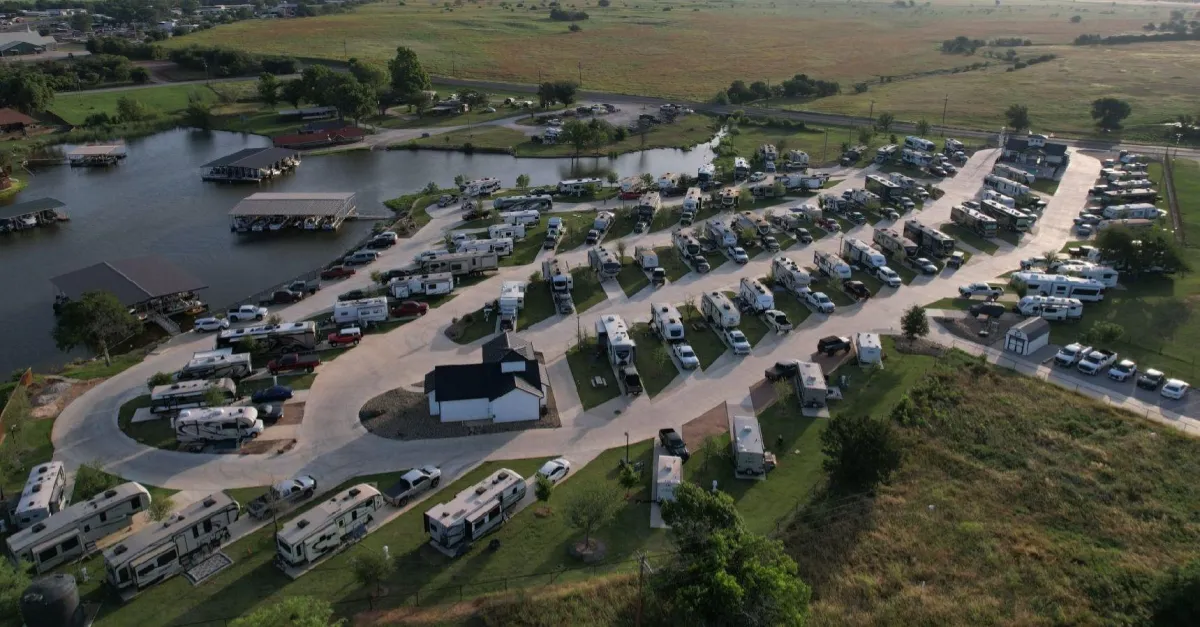

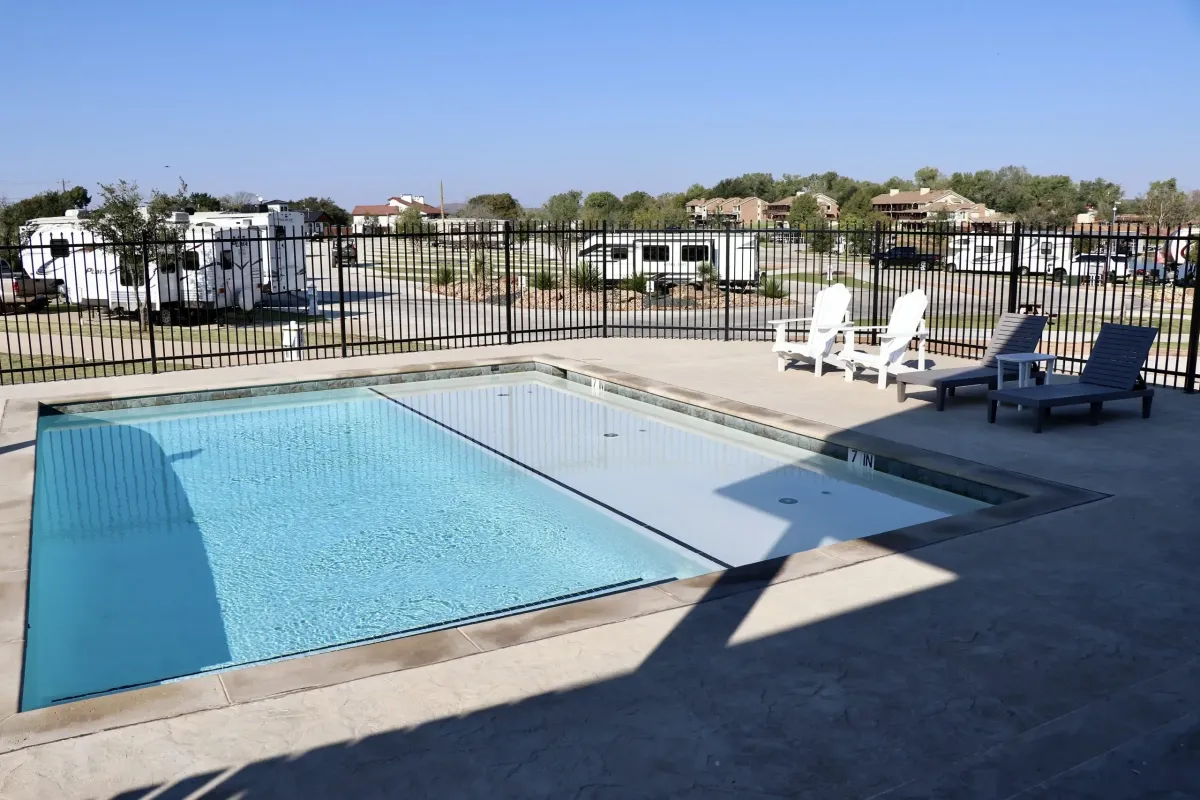

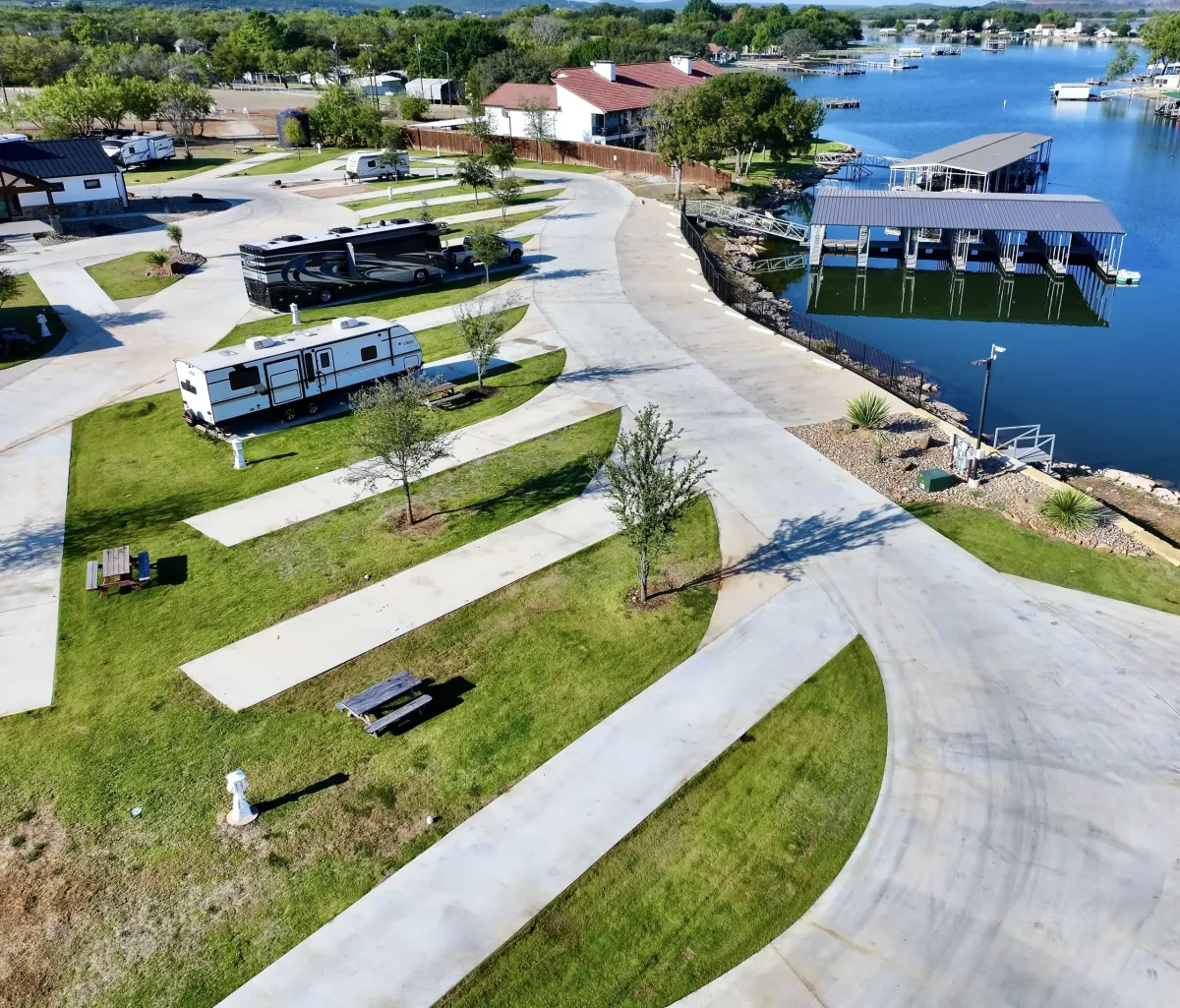


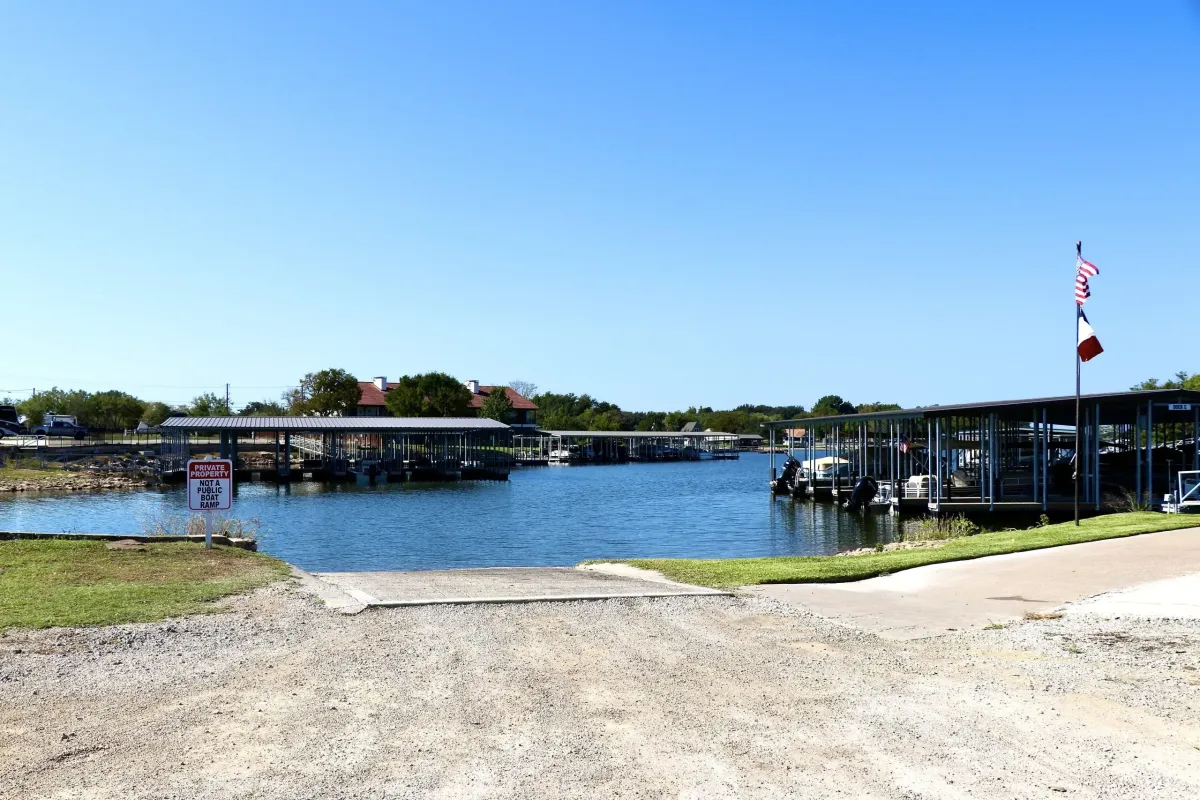
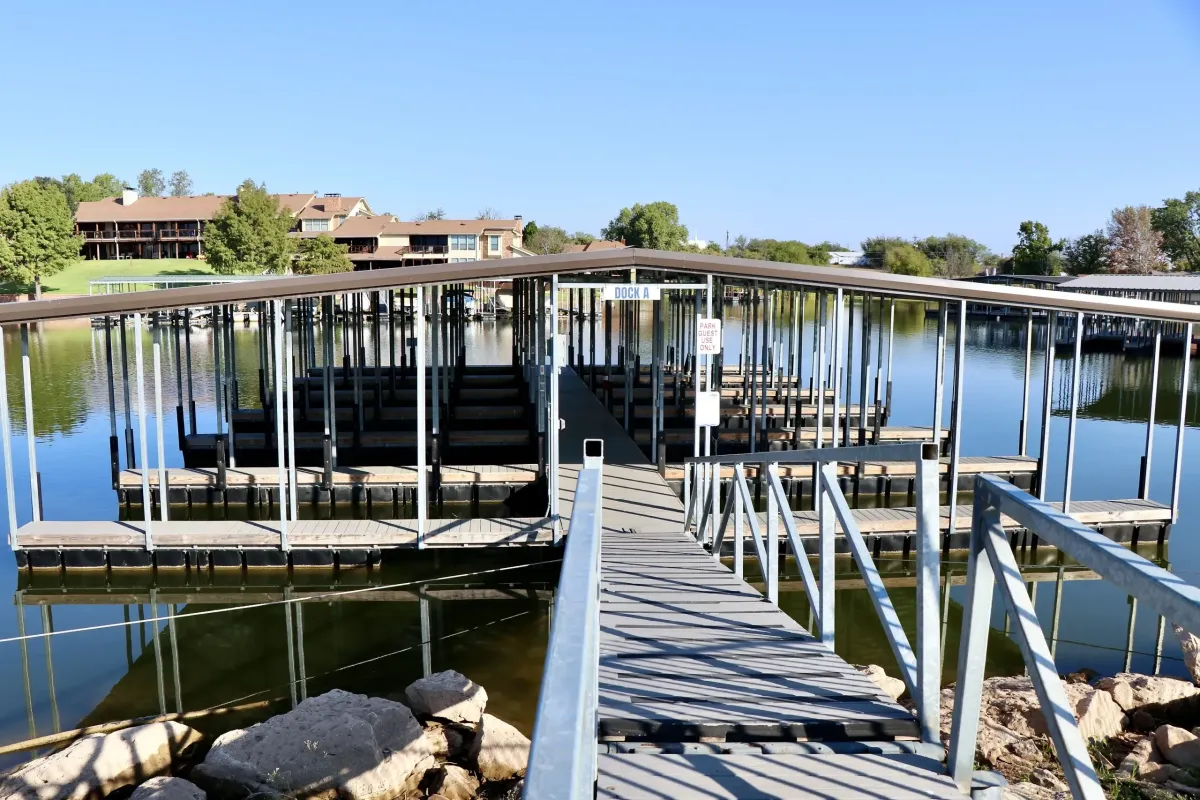

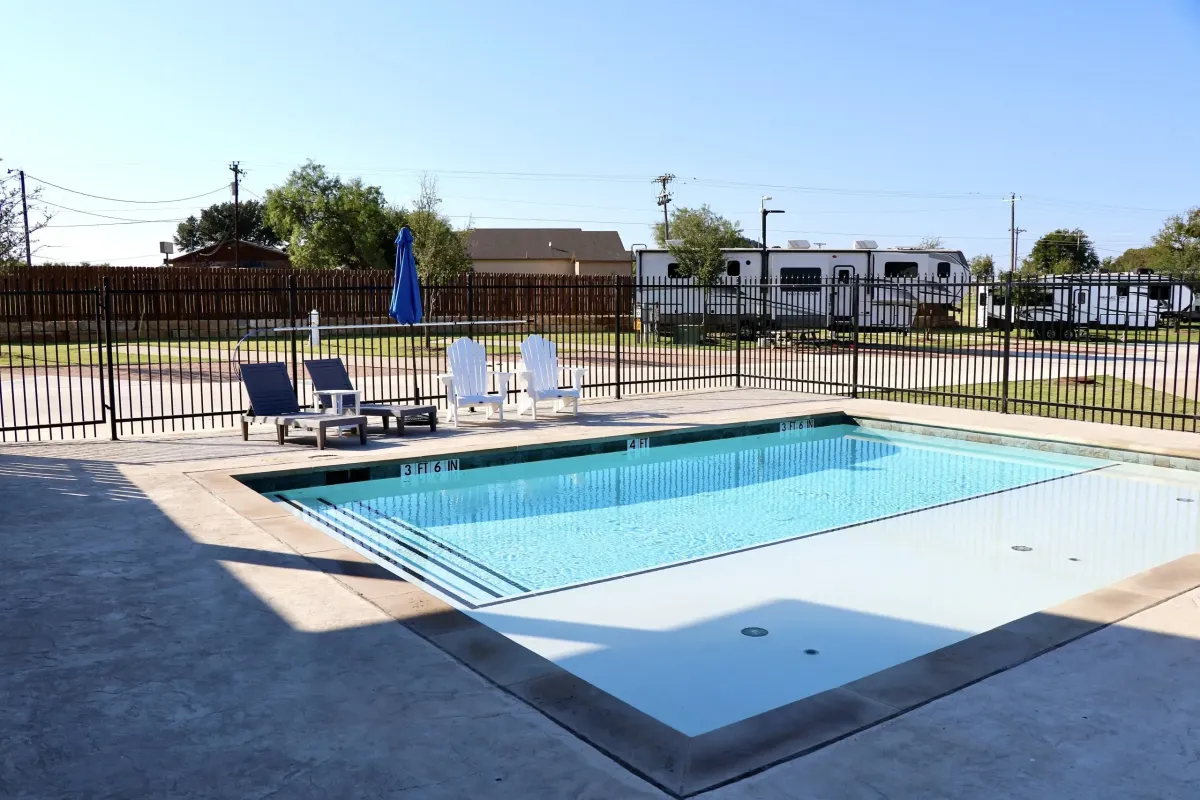
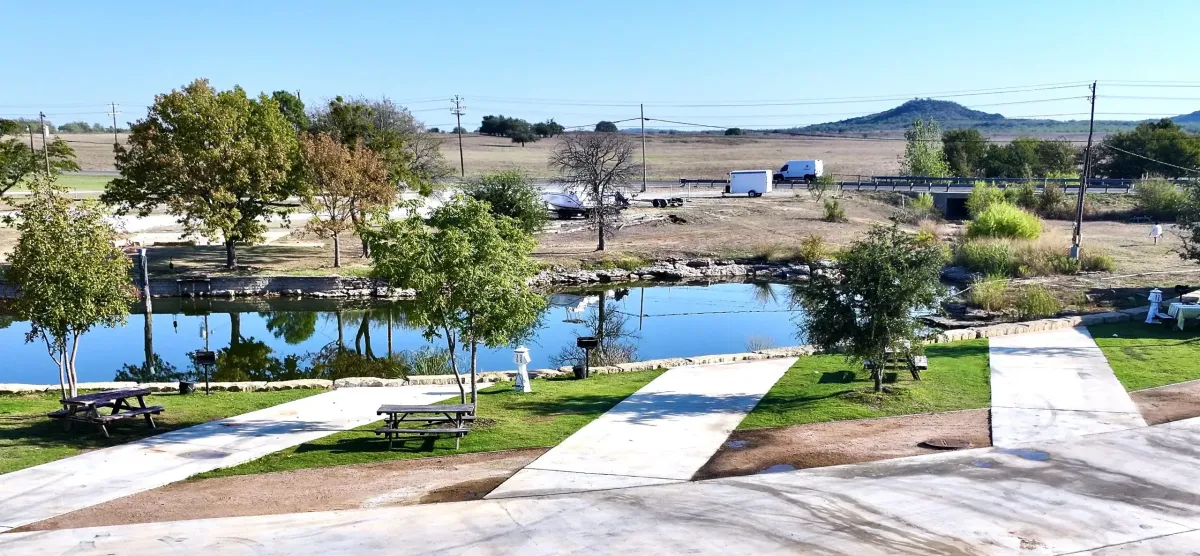



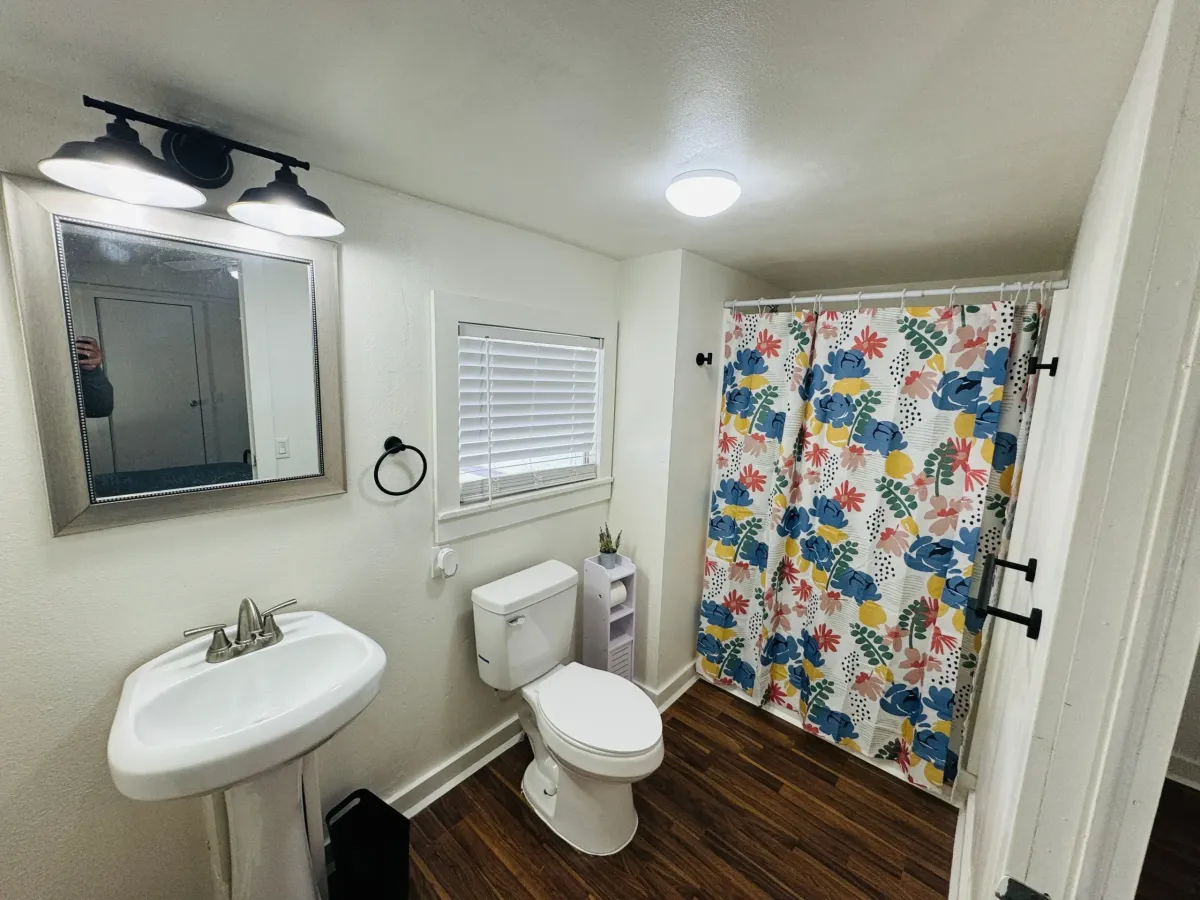


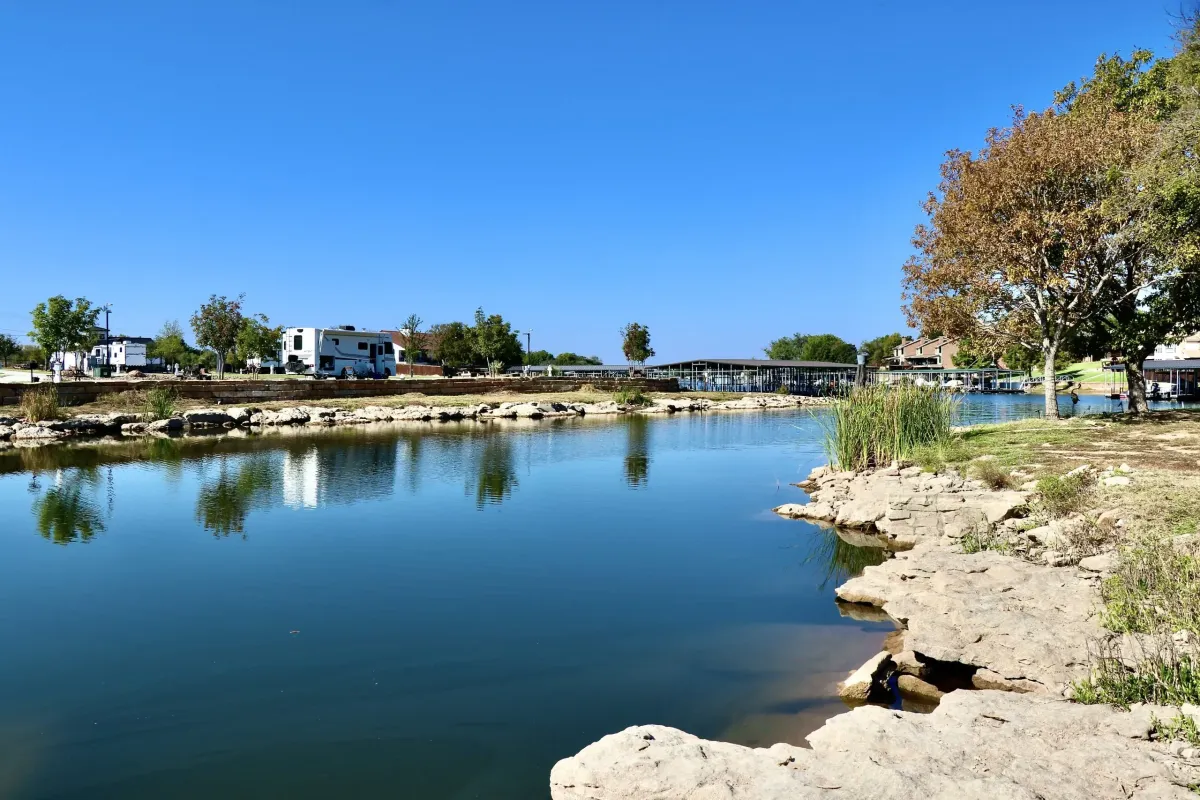
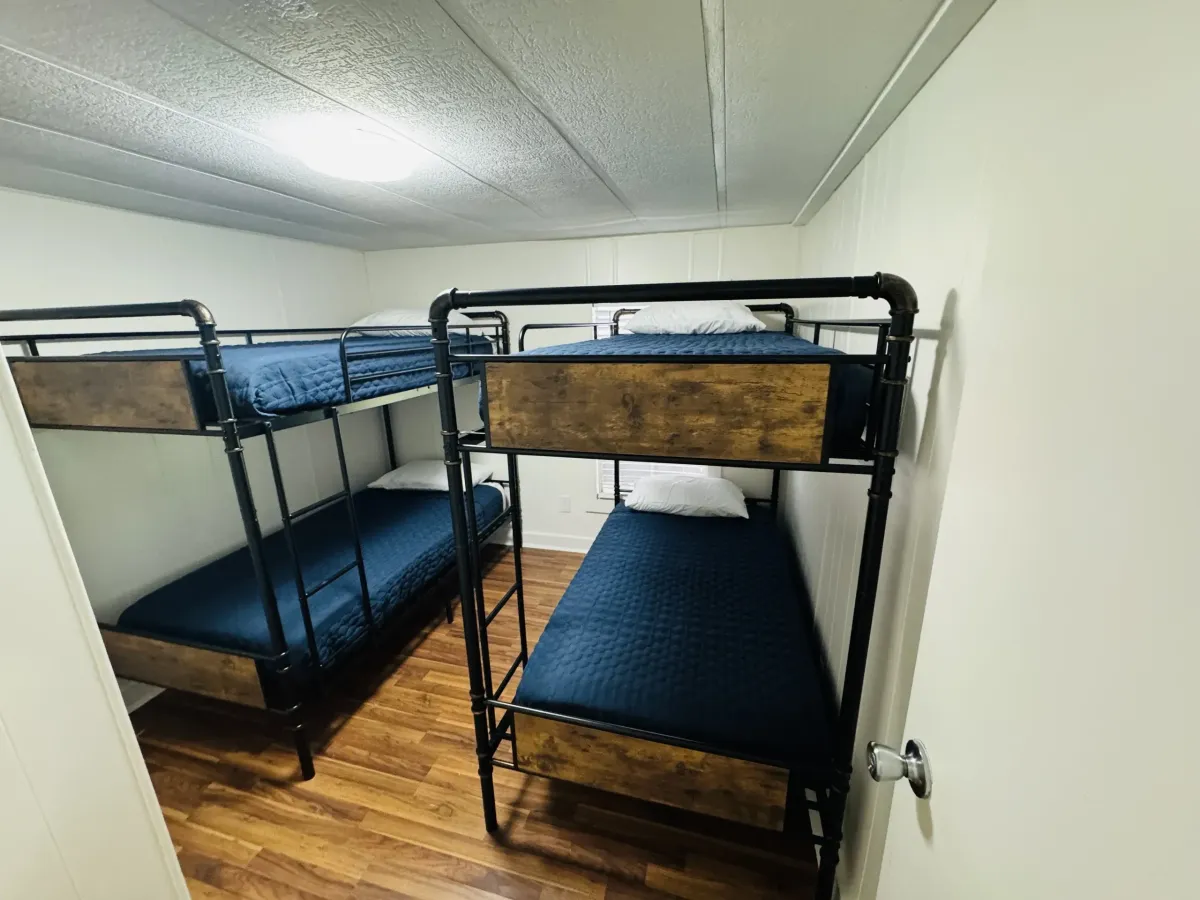



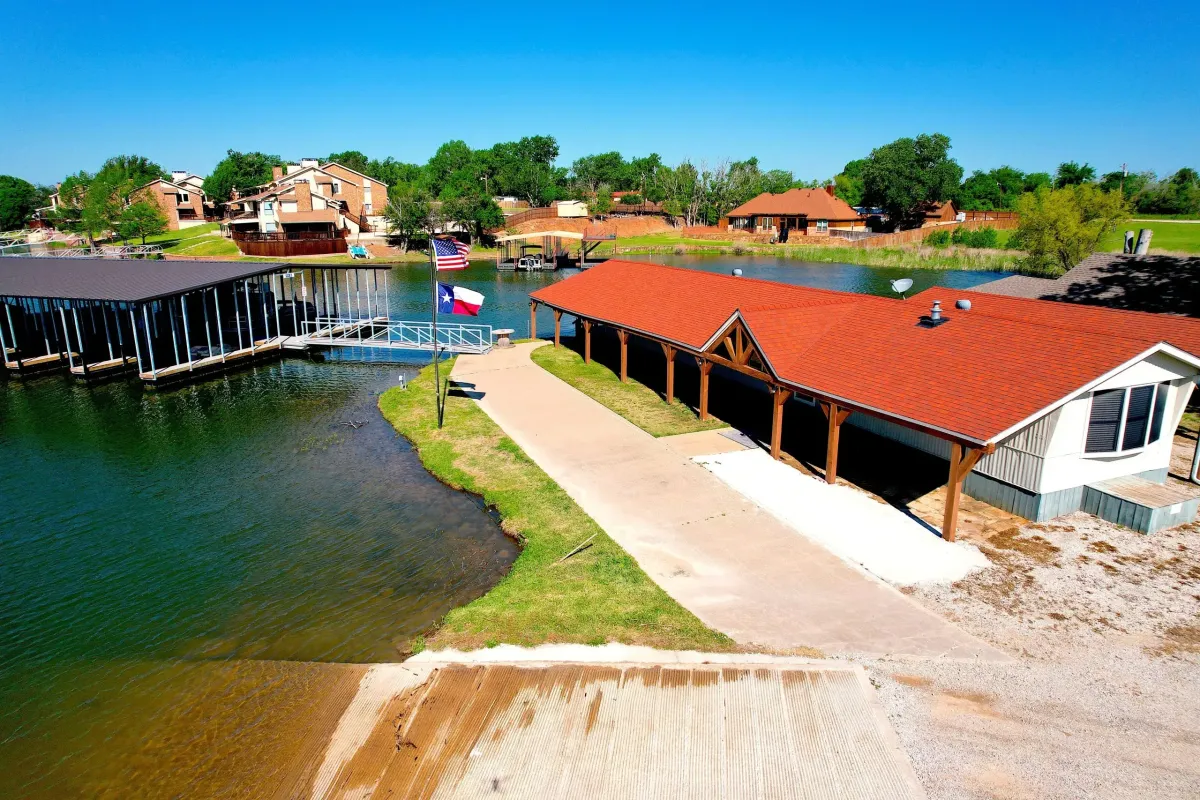
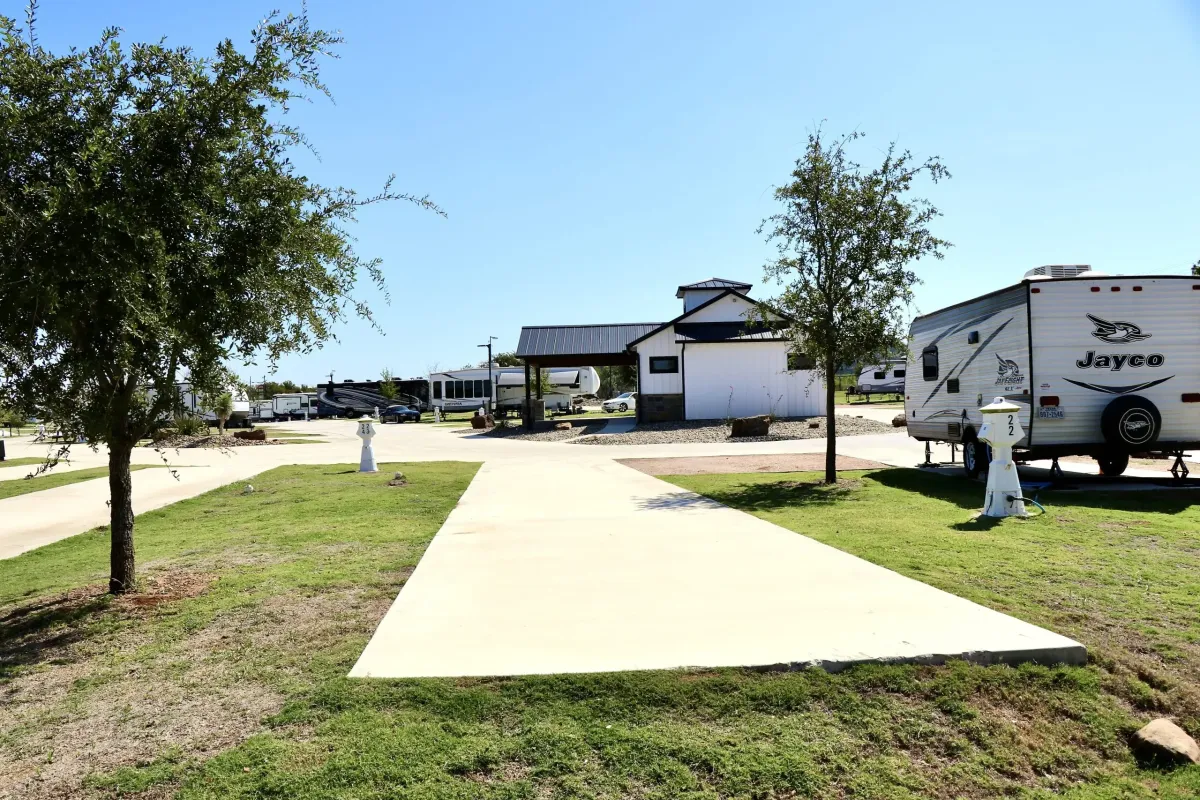

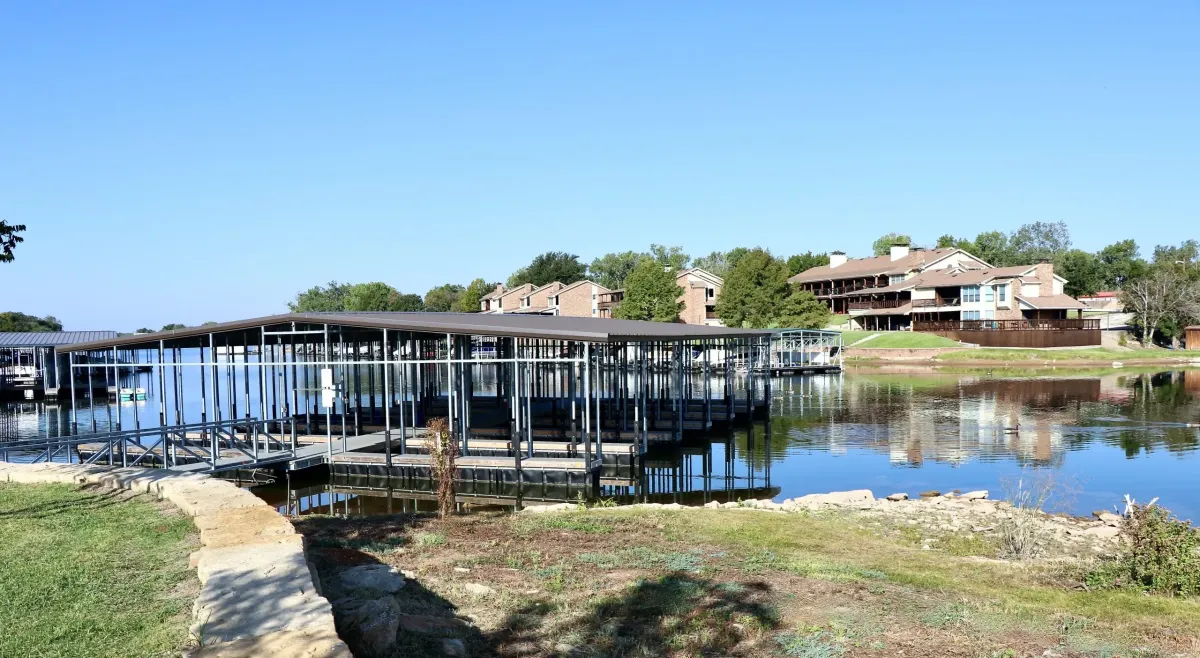

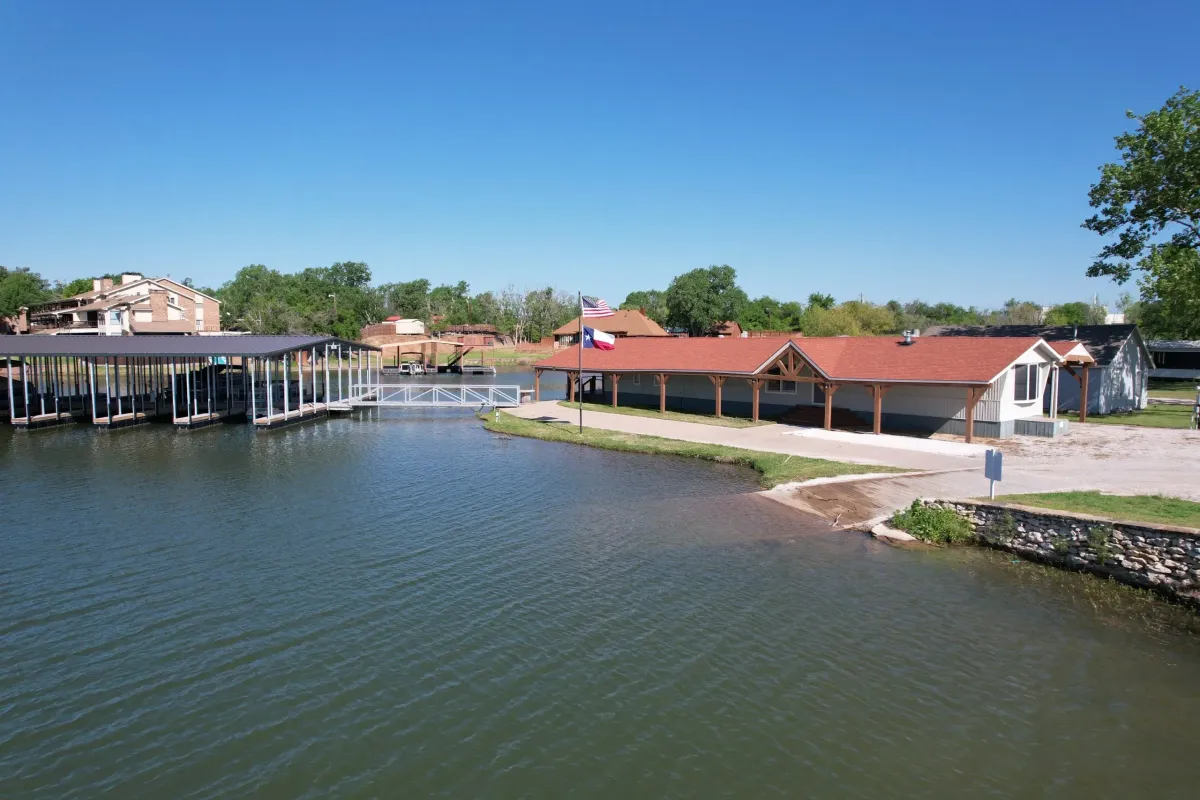

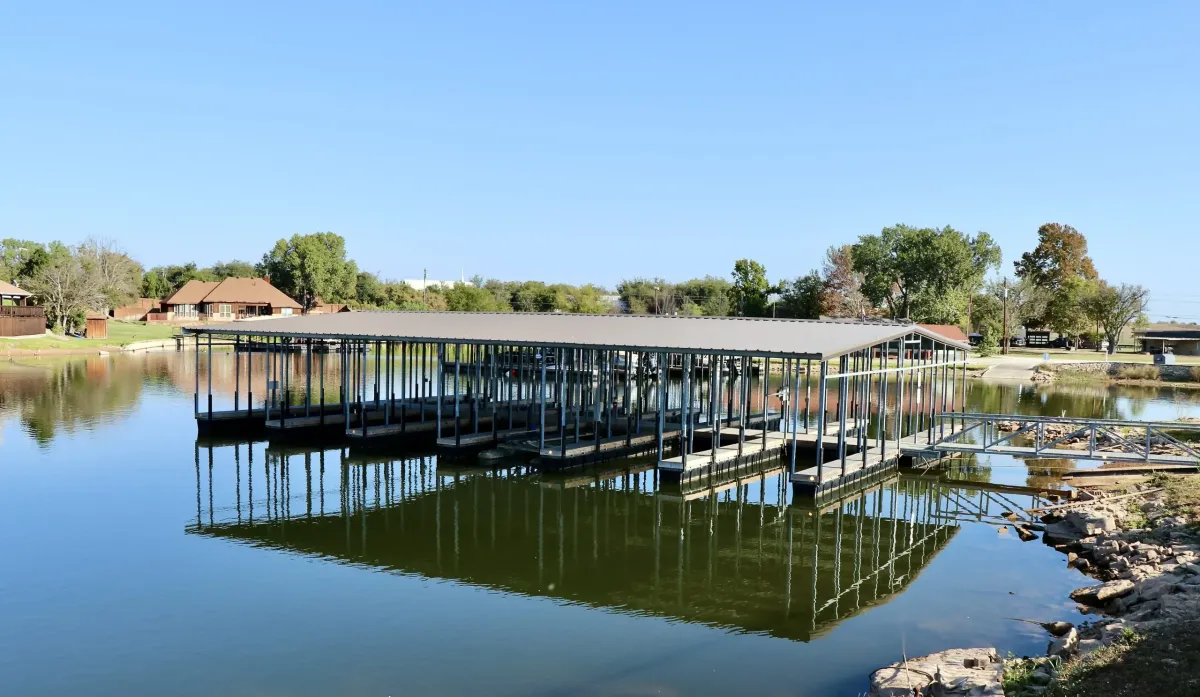
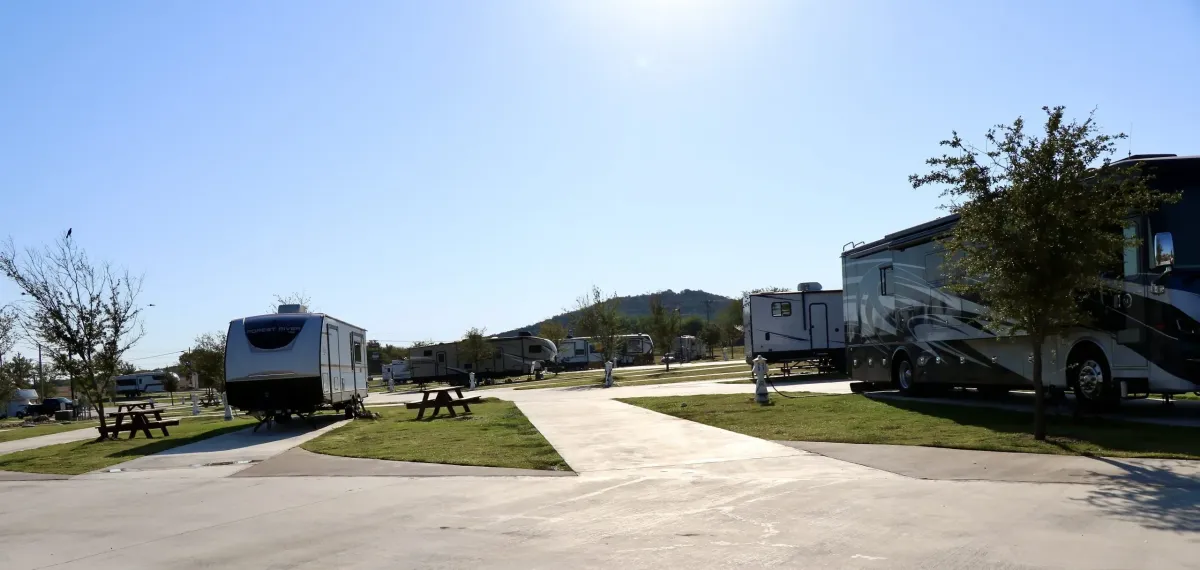


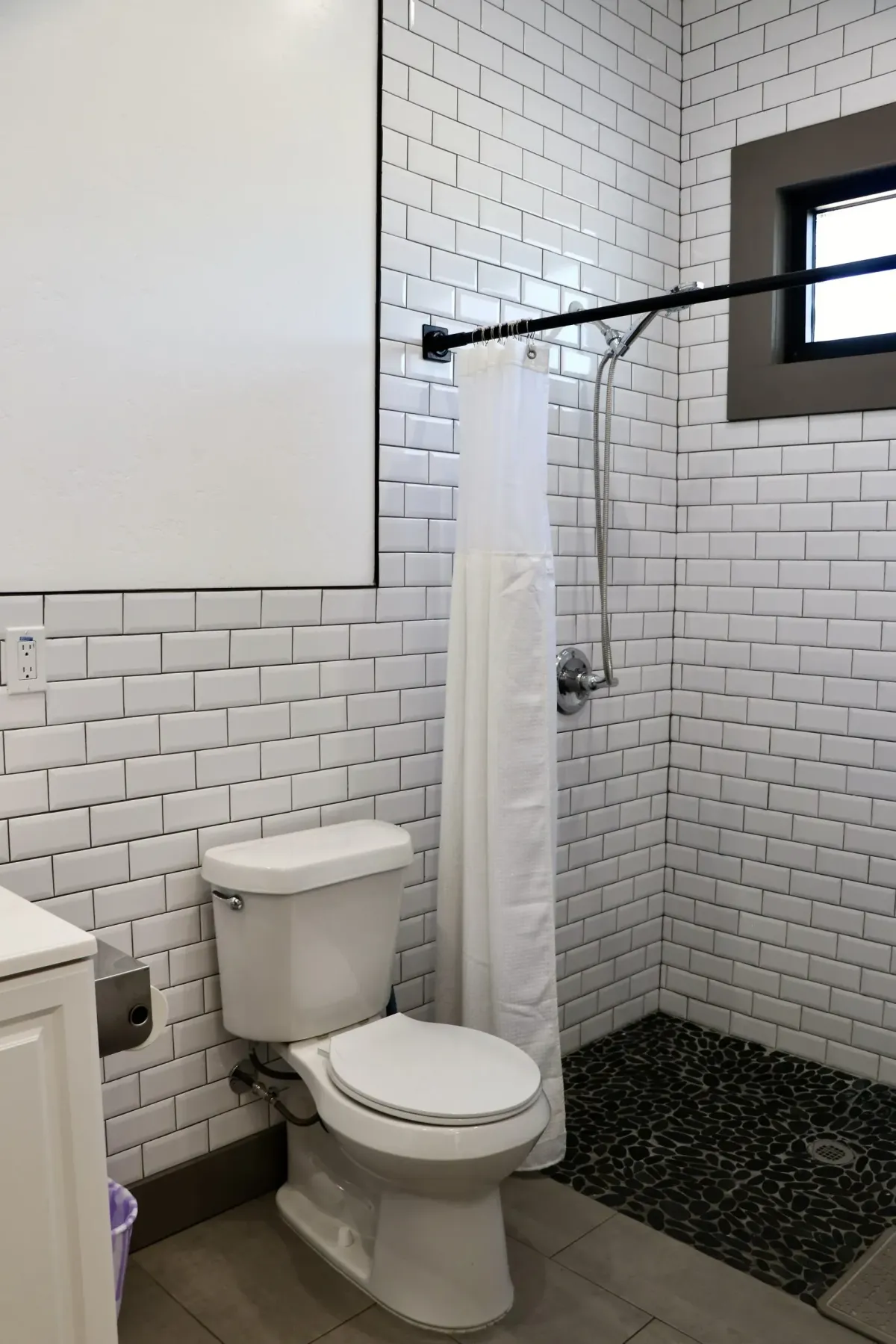



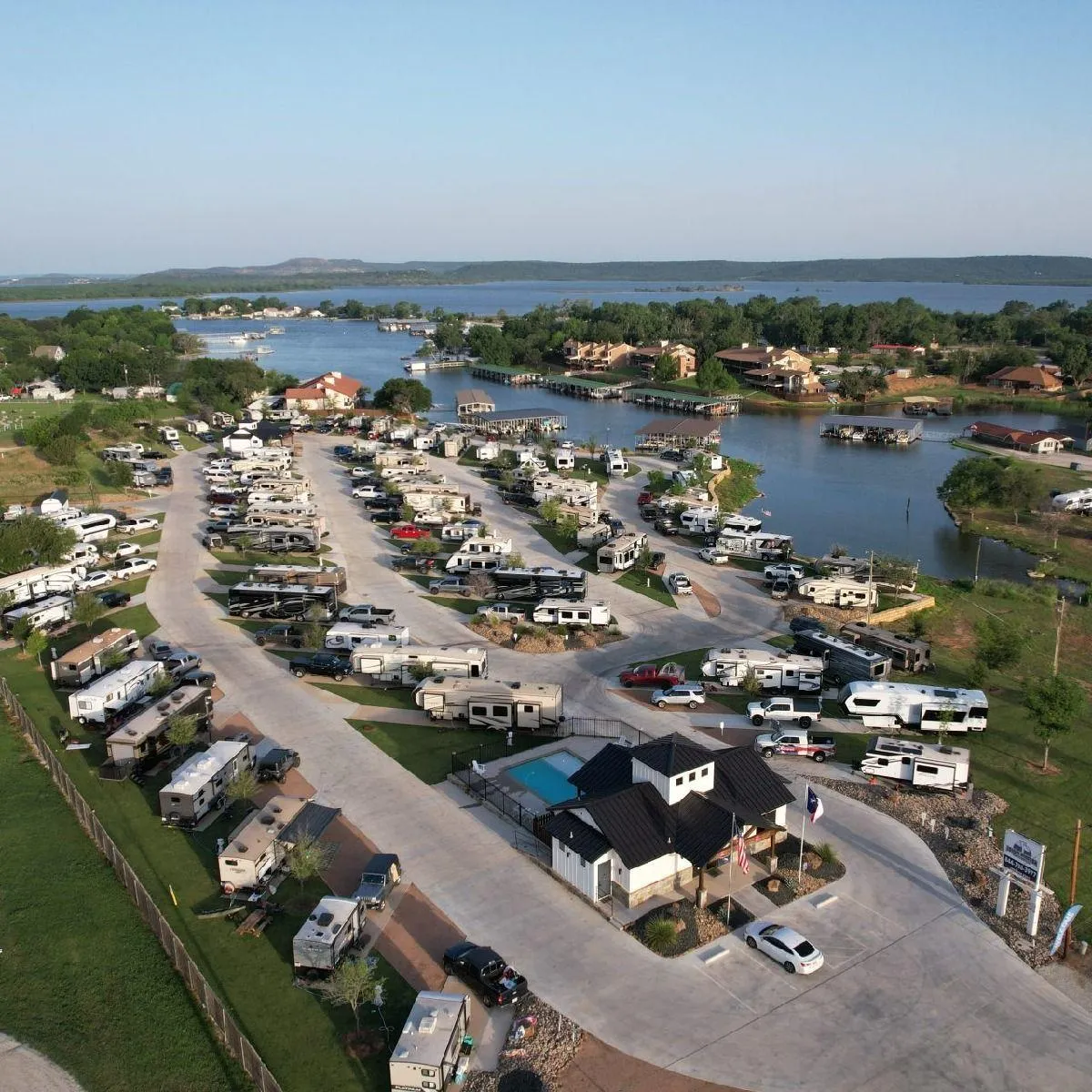
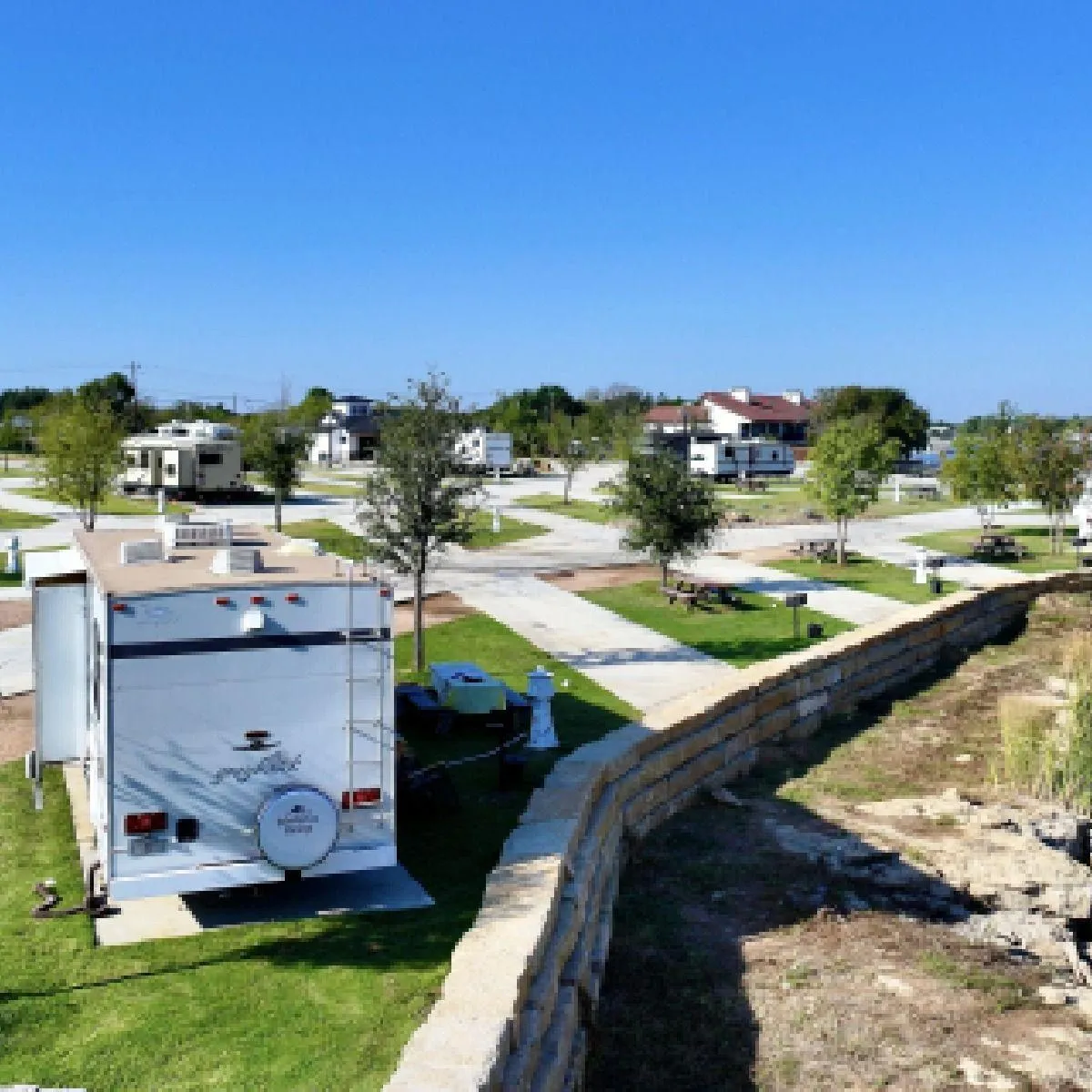
Frequently Asked Questions About Our Texas RV Park
Can you accommodate big rigs and Class A motorhomes?
A: Yes! Tye RV Park is big-rig friendly. Our spacious sites offer full hookups and easy access for large RVs, including Class A motorhomes. If you have specific size or clearance needs, just let us know and we’ll help you find the right spot..
What amenities are included with my stay?
A: At Tye RV Park, we aim to make your stay as comfortable as possible. Amenities may include high-speed Wi-Fi, clean restrooms, showers, and an on-site laundry facility. Our spacious park layout offers plenty of room to relax and unwind. Amenities may vary from time to time, so feel free to contact us or visit our amenities page for the most current list.
What's included in a full hookup site?
A: Every full hookup site at our Texas RV park includes 30/50 amp electrical service, potable water connection, sewer hookup, gravel parking pad, grassy yard area, and free high-speed WiFi. Sites accommodate up to 5 guests and 1 vehicle (additional charges may apply for extras)
Are pets allowed at your RV park?
A: Yes! We are a pet-friendly RV park, and many of our guests travel with their dogs or companion animals. We simply ask that pets remain leashed, supervised, and cleaned up after at all times. This helps ensure a safe, enjoyable environment for all guests and their furry friends.
Do you offer monthly rates for extended stays?
A: Yes! We welcome guests looking for both short-term and long-term stays. Many working professionals, traveling nurses, and seasonal visitors choose our park for monthly accommodations. We offer competitive extended-stay rates for guests staying 30 days or longer. Call us to discuss current monthly pricing, availability, and any requirements for long-term reservations.
How far is your RV park from major cities?
A: Tye RV Park is conveniently located just minutes from Abilene, Texas. Guests enjoy quick access to I-20, local restaurants, shopping, and nearby attractions. Our location makes us a popular choice for travelers looking for an RV park near Abilene.
What are your check-in and check-out times?
A: Standard check-in is at 1:00 PM, and check-out is at 11:00 AM. These times help us prepare each site for incoming guests. If you need an early check-in or a late check-out, let us know—accommodations can often be made depending on availability.
Is there a dump station if I need to empty tanks mid-stay?
A: All of our RV sites are full hookup, meaning you have sewer connections at your site, no dump station needed! This allows you to stay connected to sewer throughout your visit for maximum convenience.
Do you have WiFi at the RV sites?
A: Yes! Tye RV Park provides Wi-Fi access throughout the park so guests can stay connected during their stay. Whether you need internet for remote work, streaming, or keeping in touch with family, our Wi-Fi helps ensure a reliable and convenient connection right from your RV site.
What attractions and activities are near Tye RV Park?
A: Nearby attractions include shopping centers, local restaurants, historic Abilene landmarks, museums, parks, and outdoor recreation areas. Whether you're a family, a traveler passing through, or a long-term guest, there’s always something to explore close by.
Tye RV Blog and Travel Tips
No blogs found
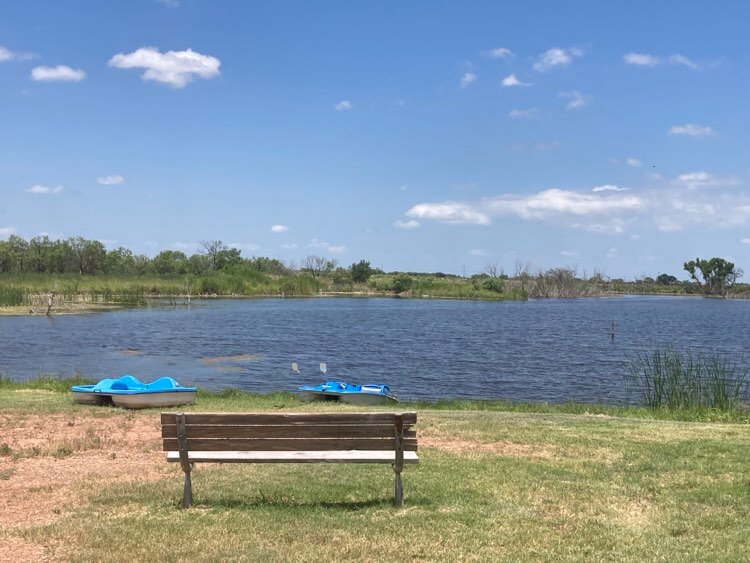
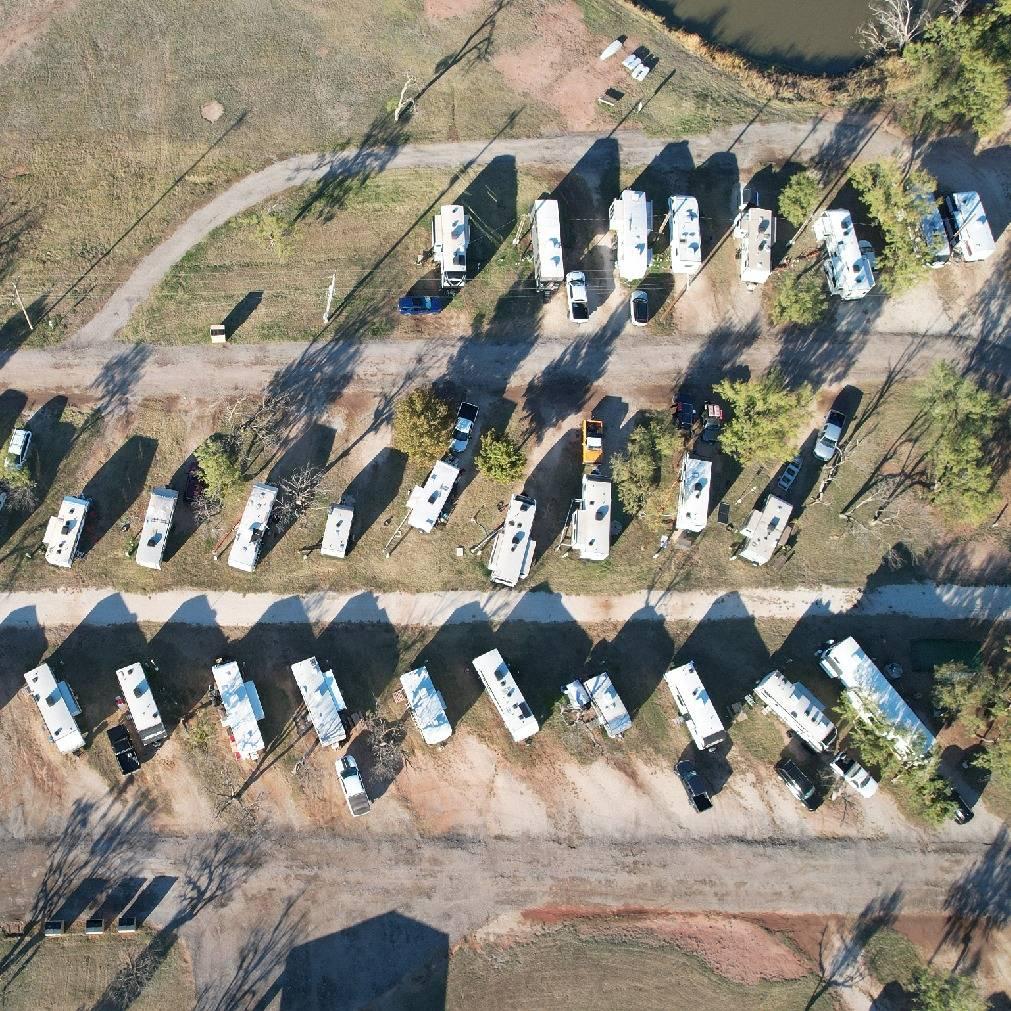


Get the Latest Discounts and Travel Tips from Tye RV Park!
Subscribe to our newsletter to receive the latest travel information and exclusive offers.
